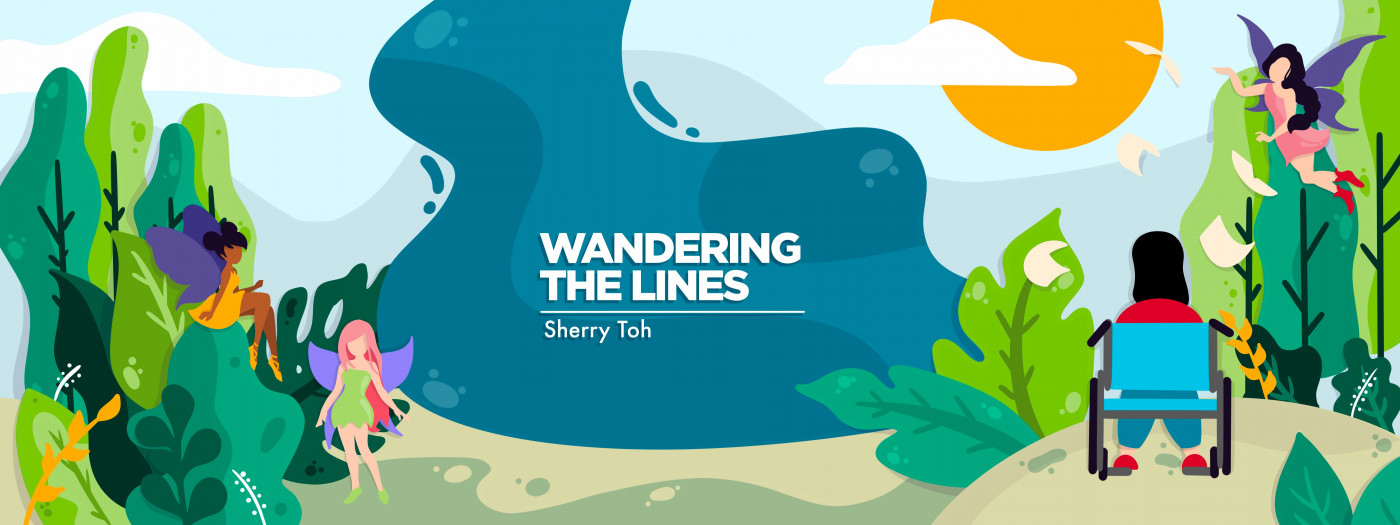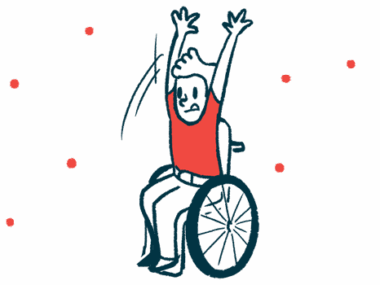NaNoWriMo 2021: To Write or to Rest?
Written by |

Hear that? It’s the sound of writers across the world readying to drive ourselves crazy in November for National Novel Writing Month, aka NaNoWriMo. We’ve got our blankets, a mug of our chosen caffeinated beverage, and snacks, and will be devolving into decrepit hermits as we attempt to achieve the ambitious, nigh impossible goal of writing 50,000 words before the month ends.
OK, maybe I’m exaggerating.
If you’re not a writer or you’re unfamiliar with the event, I apologize for the shocking introduction. Be assured that most of us are entirely capable of tending to our bodies during NaNoWriMo. We can get too wrapped up in writing a chapter or an essay to socialize or address a growl in our stomachs, but we do try to take care of ourselves and listen to the people who care for us.
But it is a process, and it can be hard. Physically and mentally. Especially if you have a disability like SMA.
I disagree with writers who say writing is a lonely, solitary process. To paraphrase fantasy writer Neil Gaiman, writing does not occur in a vacuum. It’s not a monologue. It’s a conversation.
As writers, before we can sit down and develop our draft, an idea must first be seeded inside us. Sometimes those ideas come from friends or family, sometimes they come from media we love or arguments we dislike.
Then, once our first draft is complete and edited, it’s sent to our inner circles. Our loved ones get first glimpses, and maybe give us feedback if we’re comfortable enough with each other.
Then it’s sent to beta readers and maybe sensitivity readers. Then to agents or editors, if we’re published professionally. In the final stage, after multiple merry-go-rounds of feedback and rewrites, the draft becomes a finished piece and goes out into the world, and the cycle starts anew.
Writing doesn’t sound lonely now, does it?
If anything, it fosters collaboration and vulnerability, like any art form. The collaborative aspect is one of the reasons I’m still in love with writing. I’ve written columns inspired by casual conversations with my friends. NaNoWriMo wouldn’t be a worldwide event if writers didn’t support each other pushing through November.
But writing as a conversation does have drawbacks. Somewhere in the process, we as writers can become paralyzed by fear. Either because we’ve forgotten our voice and what we want to say, or because we feel we’re not saying enough compared to others, or because writing no longer feels like a sincere response to someone else, but a performance at a party we didn’t want to attend. And if we are disabled, said party may feel like a prerequisite to finally being heard about the struggles of our daily living conditions, after years of yelling.
At the risk of sounding ungrateful for my opportunities, I’m that disabled writer at a party.
When my friend Brianna wrote about performative vulnerability in August, it wasn’t yet a concept that had occurred to me. But over the past few months, it’s become a concept I identify too strongly with. Not just with regards to my disability advocacy, but with my personal projects as well.
Novelist Jessie Burton phrases the predicament perfectly through the character of Odelle Bastien, a writer and Trinidadian immigrant in London, in her historical fiction novel, “The Muse“:
“When I began receiving public acknowledgement for a private act, something was essentially lost. My writing became the axis upon which all my identity and happiness hinged. It was now outward-looking, a self-conscious performance. I was asked to repeat the pleasure for people, again and again, until the facsimile of my act became the act itself.”
To combat this state, I’ve decided my challenge for NaNoWriMo this November will not be to achieve an ambitious word count. It will be to reflect and relearn how to write for myself, and in turn, in sincerity for others again. It will be to listen to my body when I need breaks on days when I cannot write because of my SMA and chronic neuropathy, instead of powering through and harming myself as I did last year by thinking of chapter structures, characters, and editing when I was supposed to be asleep.
It’ll be hard, but that’s what challenges are.
I’m even getting a head start. This column and the next two were first drafted in September, and I’m now editing them in October, to give myself room to rest.
So, to all writers and readers, if you must give yourself permission to take a break, the work will wait for your return. Drink some water. Eat a proper meal. Say hi to your loved ones. Go shopping, get yourself something nice as a holiday present. Play a game or open Pinterest for a bit. I’m right there with you.
***
Note: SMA News Today is strictly a news and information website about the disease. It does not provide medical advice, diagnosis, or treatment. This content is not intended to be a substitute for professional medical advice, diagnosis, or treatment. Always seek the advice of your physician or other qualified health provider with any questions you may have regarding a medical condition. Never disregard professional medical advice or delay in seeking it because of something you have read on this website. The opinions expressed in this column are not those of SMA News Today, or its parent company, Bionews, and are intended to spark discussion about issues pertaining to spinal muscular atrophy.





Leave a comment
Fill in the required fields to post. Your email address will not be published.